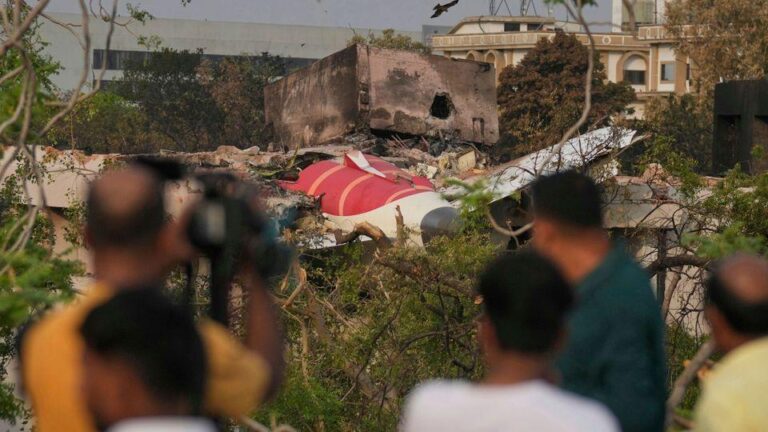At the United Nations General Assembly, tensions flared as India and Pakistan engaged in a sharp exchange over terrorism, with both sides trading accusations in the wake of the recent Pahalgam attack. The high-profile debate underscored the persistent volatility between the two neighbours, as representatives confronted each other on issues of cross-border violence and militant activity. The developments at the UNGA spotlight the enduring challenges in regional security and the fraught diplomatic landscape shaping South Asia.
India and Pakistan Clash at UN General Assembly over Terrorism Allegations
At the recent United Nations General Assembly, tensions flared as representatives from India and Pakistan exchanged sharp accusations regarding terrorism, specifically linked to the Pahalgam attack. India condemned Pakistan for allegedly harboring and supporting terrorist groups responsible for violence on Indian soil, underscoring the need for international action to hold perpetrators accountable. The Indian delegation urged the global community to recognize the threat posed by cross-border terrorism and called for a unified stance to curb extremist activities destabilizing the region.
In response, Pakistan vehemently denied any involvement in the Pahalgam incident, accusing India of politicizing the issue to divert attention from internal challenges. Pakistan emphasized its commitment to combating terrorism within its own borders and stressed the importance of dialogue based on mutual trust and respect. The exchange highlighted key points from both countries:
- India’s Claims: Pakistan’s alleged support to terrorist factions, need for global accountability, and lasting security solutions.
- Pakistan’s Position: Denial of support, condemnation of politicization, and call for peaceful dialogue.
| Aspect | India’s Stand | Pakistan’s Stand |
|---|---|---|
| Responsibility for Terrorism | Accuses Pakistan of sponsorship | Denies involvement |
| Response to Pahalgam Attack | Calls for international action | Labels it political diversion |
| Future Approach | Demand for accountability | Emphasis on dialogue |
Pahalgam Attack Sparks Renewed Diplomatic Tensions Between the Two Nations
The recent violence in Pahalgam has once again brought India and Pakistan to the brink of heightened diplomatic confrontation. Both countries exchanged sharp rhetoric at the United Nations General Assembly, with India condemning the attack as a blatant act of terrorism sponsored from across the border. Pakistan, in turn, denied any involvement, accusing India of politicizing the tragedy to divert attention from domestic issues. This escalation underscores the fragile nature of peace efforts and the deep-seated mistrust that continues to undermine regional stability.
Key demands and responses during the session included:
- India’s call for: international cooperation to dismantle terror networks operating from Pakistan.
- Pakistan’s plea: for dialogue and resolution of disputes through peaceful means rather than blame games.
- Concerns raised: over civilian safety and cross-border ceasefire violations linked to militant activities.
| Country | Position on Pahalgam Attack | Suggested Next Steps |
|---|---|---|
| India | Calls for strict international sanctions on terror sponsors | Increased global counterterrorism coordination |
| Pakistan | Denies involvement; urges peaceful dialogue | Political solution through bilateral talks |
Experts Call for Strengthened Cross-Border Counterterrorism Cooperation and Dialogue
Security analysts and regional experts emphasize the urgent need for enhanced collaboration between India and Pakistan to effectively combat terrorism that undermines peace and stability in South Asia. Recent exchanges at the UN General Assembly have highlighted entrenched mistrust, yet experts argue that sustained dialogue and intelligence sharing are indispensable for addressing cross-border terror threats. They advocate for platforms that facilitate transparent communication channels, aiming to dismantle terror networks and prevent incidents similar to the Pahalgam attack.
Key recommendations put forward include:
- Establishment of joint counterterrorism task forces to monitor and respond swiftly to emerging threats.
- Regular bilateral talks focusing on conflict-resolution mechanisms and confidence-building measures.
- Exchange of actionable intelligence to preempt attacks and disrupt terror funding networks.
- Involvement of international mediators to facilitate a neutral environment for negotiations.
| Focus Area | Proposed Initiative | Expected Impact |
|---|---|---|
| Communication | Regular Security Dialogues | Increased transparency and trust |
| Operations | Joint Counterterrorism Task Forces | Coordinated swift response |
| Intelligence | Insights and Conclusions
As the debate at the United Nations General Assembly concluded, the sharp exchanges between India and Pakistan underscored the persistent tensions over terrorism and regional security. While both nations reaffirmed their commitment to peace and dialogue, the recent Pahalgam attack remains a stark reminder of the challenges that continue to hinder progress. The international community’s call for constructive engagement and decisive action against terrorism carries renewed urgency as India and Pakistan navigate this contentious chapter on the global stage. |




